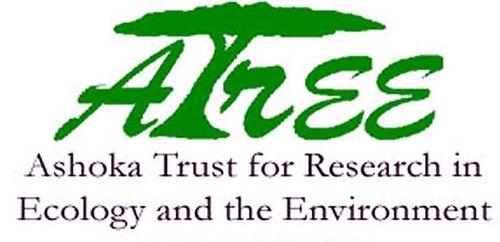/topics/biodiversity
Biodiversity
A farmer intrinsically trusts the land, says 'Timbaktu' : A national-award winning film on an organic farming movement in Andhra Pradesh
Posted on 22 Mar, 2013 09:58 AM'Timbaktu' describes the motivation, efforts and results of the Timbaktu collective started in the 1980s by Mary and Bablu Ganguly. Just as important, it narrates the story of a couple with a dream, and how they made it come true.
Safe water for all - Some ways we can preserve this natural resource
Posted on 21 Mar, 2013 09:36 PMWater rights are being discussed today as a possibility. This will lead to civil war in this country. Rights are meaningless without paying attention to duties. It is our constitutional duty to preserve and heal our environment.
If we pay attention to freeing our waters:

Experiences from a civil society initiative to restore stretches of toxic Yamuna: Report of a conference organised by PEACE, Thames River Restoration Trust and WWF India at New Delhi in March 2013
Posted on 16 Mar, 2013 09:12 PMDr Peter Spillet of the Thames River Restoration Trust shared that the Trust was the recipient of the 2010 Theiss International Riverprize funds on behalf of many organizations involved in the restoration work on river Thames in United Kingdom. He said that the Trust had shared the money for twinning projects in various countries including in India.
Born to fly: A video on the joy of flying in Harike, north India's largest wetland
Posted on 12 Mar, 2013 01:20 PMSource of video: thenitindas
Awareness and brainstorming on urban wetlands of Maharashtra by TERI on the occasion of World Wetlands Day 2013
Posted on 10 Mar, 2013 11:29 PMChanging climate, changing lives - A film on the impact of climate change on agriculture in Dhulikhel, Nepal
Posted on 09 Mar, 2013 12:38 PMThe story of climate change has been hijacked by snow and ice.
ATREE invites applications for its interdisciplinary PhD programme in conservation science and sustainability studies - Apply by April 25, 2013
Posted on 21 Feb, 2013 04:44 PMOffered by
Ashoka Trust for Research in Ecology and the Environment (ATREE)
About ATREE
ATREE is an environmental research organization that focuses on biodiversity conservation and sustainable development. It is based in Bangalore and recognized as a PhD research centre by Manipal University. ATREE’s interdisciplinary doctoral programme is perhaps the only one in the country with faculty from across relevant natural and social science disciplines.
About the Fellowships
ATREE invites applications for admission to its Doctoral Research Programme for the academic year starting August 2013.
Applications are invited from highly motivated students with a Master’s degree in any branch of the social, natural, or engineering sciences. Students will undergo intensive course work and will be expected to undertake independent research on any environmental topic under a multi-disciplinary dissertation committee.
Students are expected to join the programme full-time and 5-year fellowships will be provided for maximum of 10 students. Fellowships range from Rs. 16,000 to Rs. 18,000 per month.
Assessing the land use change and its impact on water resources: A study on the Mula and Mutha rivers catchment area in Pune
Posted on 17 Feb, 2013 09:11 PMLand use changes hydrologic system and have potentially large impacts on water resources. An assessment in an area with seasonally limited water availability and which is subject to rapid socio- economic development and population growth will provide an exemplary view on the local impacts of major recent developments in India. In this backdrop this paper analyzes past land use changes between 1989 and 2009 and their impacts on the water balance in the Mula and Mutha Rivers catchment upstream of Pune. The aim of the paper is:
- assess the land use changes between 1989/1990 and 2009/2010
- analyze the impacts of these changes on the long-term water balance components in the Mula and Mutha Rivers catchment upstream of the city of Pune.
GreenKarbon photography contest Expedition 5, GreenKarbon - Deutsche Bank - Submit entries by February 28, 2013
Posted on 17 Feb, 2013 01:23 PMOrganizers








